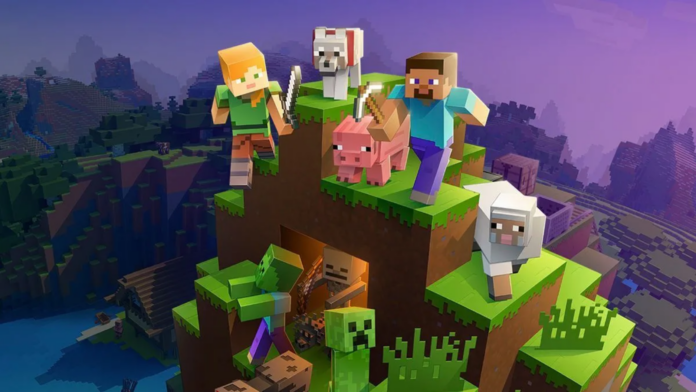In a surprising turn of events for the gaming community, Worldcoin, known for its innovative approach to identity verification, has unveiled a pioneering integration with Minecraft. This collaboration, albeit unexpected given Minecraft’s staunch opposition to cryptocurrency and NFTs, introduces a novel dimension to gameplay without breaching the game’s regulatory boundaries.
Minecraft, a global gaming sensation, has notably stood against the integration of cryptocurrency and NFTs. However, Worldcoin’s recent announcement of an integration leveraging its unique World ID credential system has sparked interest and curiosity.
At the core of Worldcoin’s innovation lies the “Orb,” a cutting-edge device that captures and processes iris scans to generate a distinctive IrisCode. This data is securely stored on the blockchain, creating a verifiable World ID as proof of identity. Additionally, participants receive WLD crypto tokens, integral to the Worldcoin ecosystem.
So, how does this seemingly disparate technology find its place within the blocky universe of Minecraft? The World ID credential serves as a means of user verification, empowering Minecraft server administrators to mandate player authentication before granting specific in-game privileges.
Addressing the rising concern of bots infiltrating online gaming realms, a Worldcoin spokesperson highlighted the World ID’s role in preserving privacy while differentiating human players from automated counterparts. “The integration with Minecraft is designed to assist server administrators in curbing instances of ‘griefing’ and ensuring a safer, more enjoyable gaming experience for all,” Decrypt’s GG reported.
Minecraft’s stance against NFTs and cryptocurrencies has been steadfast, with a previous ban announcement in 2022, followed by implementation this year. The prohibition extends to rewarding players with cryptocurrencies, leading servers engaging in Bitcoin payouts to discontinue the feature.
The updated Minecraft end-user license agreement (EULA) explicitly prohibits play-to-earn mechanisms involving cryptocurrency rewards and NFTs fostering exclusivity around in-game items. The underlying ethos revolves around maintaining a level playing field for all players without external conditions influencing gameplay experiences.
However, Worldcoin’s integration, centering solely on the World ID credential, refrains from incorporating cryptocurrencies or tokens within Minecraft’s environment. This prompts the question: does it comply with Minecraft’s stringent regulations?
When approached for commentary, a Minecraft spokesperson reiterated their lack of involvement in the Worldcoin initiative, labeling any Minecraft integration as unofficial. Yet, they acknowledged that adherence to the EULA guidelines, particularly regarding NFTs and play-to-earn features, could render the Worldcoin integration acceptable.
A representative from Worldcoin clarified that the WLD token operates distinctly from the World ID credential. Notably, individuals in certain regions, including the United States, might not currently access the token, emphasizing that World ID functionality remains independent of the token’s availability.
This clear segregation between the technological aspect and the token itself seems pivotal in enabling Worldcoin to navigate Minecraft’s stringent regulations concerning blockchain integration, ensuring the continued utilization of its World ID functionality within the game.
In essence, while Minecraft distances itself from explicit involvement, the Worldcoin-Minecraft integration signifies a nuanced approach within the gaming landscape, exemplifying how identity verification tools can harmoniously coexist without encroaching upon established gaming regulations.















